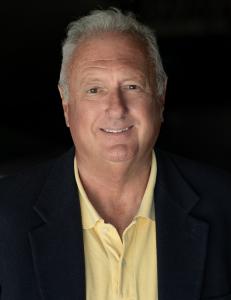
Expert Suggests Rule Change, Other Factors Are Hurting Funding for New Businesses
Burns Funding specializes in helping entrepreneurs and investors obtain private, unsecured debt capital.
“It’s not going to get any easier.”
Burns, whose company specializes in helping entrepreneurs and investors obtain private, unsecured debt capital, has his finger on the pulse of the traditional lending market.
“The pulse is very feint,” he said. “The banks are in no hurry to loan money in a climate of higher interest rates, when it can support its own earnings by holding on to the money.”
The situation is further complicated by other factors, such as a little-known SEC rule change in 2011, which was intended to protect angel investors. A research team at the University of Iowa has determined that it has “sharply reduced start-up funding for new ventures.”
Jiajie Xu, assistant professor of finance in the Tippie College of Business, said the rule change meant that angel investors could no longer count the value of their house as an asset in order to be accredited by the SEC. The change has resulted in the following:
--The number of potential angel investors was cut by 20% and led to an 11% decrease in the amount of angel investments in the most affected cities.
--The greatest effect has been seen in smaller cities away from the coasts, places that most need angel investors because VCs and investment funds generally pay them less attention.
--The number of patents issued to companies based in the most affected cities dropped in the decade after the rule change, as did retail sales and number of jobs at angel investor-supported businesses.
--Founders have been forced to rely more on SBA loans and second mortgages to finance their start-ups.
These two factors and many others have led hundreds of entrepreneur and investors to turn to Burns Funding to its novel approach to helping entrepreneurs obtain the capital they need to be successful, or the “Burns Funding Method.”
The company recently published a website devoted to the method, which explains this innovative approach where Burns Funding obtains the funds for borrowers, then repays their loans using proven passive investment income streams. Not surprisingly, the Method has attracted almost three dozen borrowers in recent months, with many, many more in the pipeline for being approved. Not surprisingly, Burns Funding was recently profiled in the Wall Street Times in the following article about its meteoric rise.
Burns noted that the company’s niche will give it staying power.
“We are a great alternative to traditional banks, which are difficult for entrepreneurs to work with,” said Burns. “We have hundreds of private investors who have come to trust Burns Funding and are willing to back that up with their capital. We embrace borrowers. This attitude directly opposes the negative reception that entrepreneurs receive from banks and other conventional lending sources.”
ABOUT PETER J. BURNS III
Based in La Jolla, California, Peter J. Burns III grew up in a well-established New England family in New Canaan, Connecticut. He was briefly educated at the United States Military Academy Preparatory School at West Point, the University of Virginia (UVA), and finally, Harvard Business School's Owners and Presidents Management Program. While his two younger brothers went on to have very successful traditional business careers, Burns chose the life of a startup entrepreneur.
Burns started hundreds of businesses over the ensuing decades. In the early 2000s, he moved to Arizona and became a pro bono adjunct faculty member at the highly respected Barrett Honors College at Arizona State University. In 2006, Burns took his teaching practice across town to Grand Canyon University and its entrepreneurial founder Brent Richardson, where the two men would launch the nation’s first College of Entrepreneurship at GCU.
In recognition of his work, the Arizona chapter of the Future Business Leaders of America named Burns its Businessperson of the Year in 2007.
Shortly thereafter, Burns started Club Entrepreneur to unite entrepreneurs in an “open-source entrepreneurship” platform. The Phoenix chapter attracted 10,000 members.
In 2016, Burns moved to the West Coast and started Burns Funding to help entrepreneurs secure hard-to-get funding for their businesses.
Taken as a whole, Burns says all the businesses have a “common thread.”
“Every business I start represents my desire to help existing and would-be entrepreneurs reach their full potential,” said Burns. “Too often, they give up because of a lack of capital. I set out to solve that problem and won’t rest until every entrepreneur who needs money can secure it.”
Holt Hackney
Hackney Communications
+1 512-632-0854
email us here
Visit us on social media:
Facebook
X
LinkedIn
EIN Presswire does not exercise editorial control over third-party content provided, uploaded, published, or distributed by users of EIN Presswire. We are a distributor, not a publisher, of 3rd party content. Such content may contain the views, opinions, statements, offers, and other material of the respective users, suppliers, participants, or authors.


